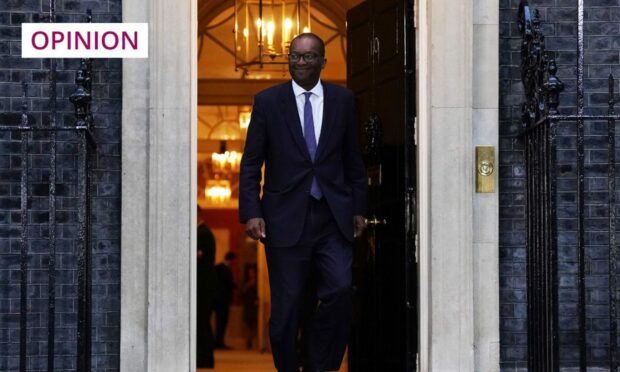When I was a kid in 1970s Britain, racism was all the rage. It seemed everyone was at it.
There was the public stuff – the rise of the far-right National Front with its demands that Black and Asian Brits be “sent back”, for example.
And then there was the private stuff, the casual use of racist epithets by people who, I’m sure, considered themselves in favour of equality.

If you’re of a similar vintage to me and you grew up in a household where references to popping to the P*** shop were never heard, then I suspect you may be in the minority.
If you didn’t laugh in the playground at jokes based on the colour of someone’s skin or their unusual – to white Scots – name, then you were a more progressive child than I.
Progress can be seen among latest government appointments
Things are, I think, a little better, these days. People from a diverse range of ethnic backgrounds are more commonly represented on TV; in politics, the hegemony of white men is – slowly – breaking down.
And so, regardless of what you think of their ideological positions, the fact that holders of three of the so-called great offices of state are now held by non-white Brits must surely be seen as progress.
Chancellor Kwasi Kwarteng, Foreign Secretary James Cleverly, and Home Secretary Suella Braverman are now – new Prime Minister Liz Truss, aside – the most high-profile figures in the UK Government.
The honour of a lifetime to be appointed Chancellor of the Exchequer by our new Prime Minister, @trussliz
This evening, we’ve been finalising our package of urgent support to help with energy bills, with an announcement this week. pic.twitter.com/srLWIqnw5P
— Kwasi Kwarteng (@KwasiKwarteng) September 6, 2022
Labour, I’m afraid, has some way to go to catch up when it comes to creating a more diverse team.
The election of Anas Sarwar as leader of Scottish Labour was undoubtedly a step forward, but his prominent role also allows him to remind us that prejudice based on skin colour is very much alive.
Anyone who has heard him talk of his young kids’ experiences of racism should be jolted out of their complacency on this issue.
Privilege stops true government diversity
But while Liz Truss’s cabinet may be ethnically diverse, one particular group dominates. Three-quarters of the prime minister’s top team were privately educated.
They are from privileged backgrounds which, I fear, will always make it difficult for them to fully understand the stresses of people struggling with the most horrendous cost-of-living crisis.
These are people who do not know what it is to have to decide between heating and eating.
I’m no class warrior. I’ve no objection to the existence of private schools. I have friends who attended them and who send their kids to them.
What I do object to is private education as a golden ticket to career advancement.
It is right that the UK Government reflects the ethnic mix of the nation. But true diversity will never be achieved while the majority of those who govern have enjoyed lives of privilege that the vast majority of us can only imagine.
Euan McColm is a regular columnist for various Scottish newspapers


Conversation